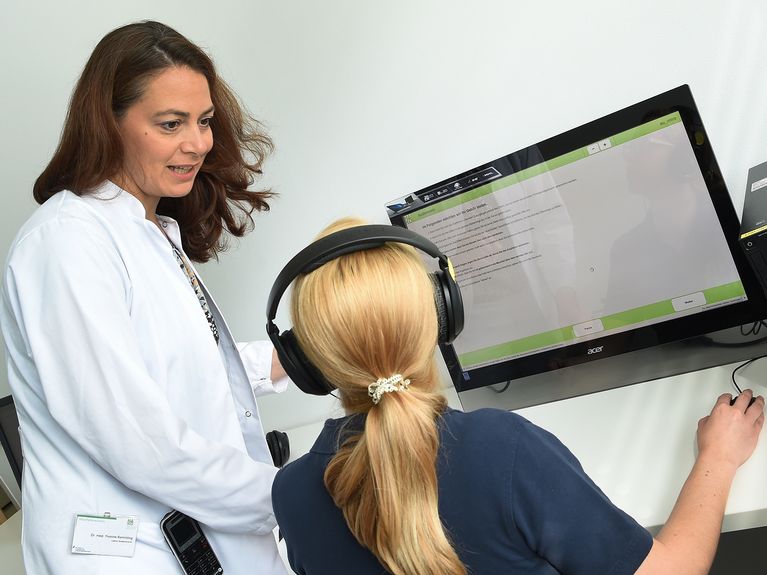
Story #24
Using Long-term Studies to Find the Causes of Widespread Diseases
What makes us sick? What keeps us healthy? And when should we take preventive measures? Thanks to major cohort studies like the NAKO Health Study and the Rhineland Study, we can better understand widespread diseases like cancer, diabetes, dementia, cardiovascular disease, and infections, and identify corresponding risk factors.
When are changes in the body healthy, and when are they pathological? Which factors are important in the manifestation of disease? The patient’s environment, social setting, or workplace situation? Or their genes? And what impacts do their lifestyle and diet have? A range of risk factors have already been identified. But how they interact and affect our health can only be determined in detail with the aid of major cohort studies.
The German National Cohort (NAKO) offers researchers an unparalleled database for identifying lifestyle diseases earlier or finding targeted preventive measures. NAKO is Germany’s most extensive long-term population study, for which more than 205,000 randomly selected citizens continually undergo extensive medical examinations and are surveyed on their lifestyles and habits at 18 Study Centers. When the study began, the participants were aged 20 to 69 – and roughly 60,000 of them are served at the Helmholtz Association’s Study Centers in Augsburg, Berlin, Hannover, Heidelberg/Mannheim and Saarbrücken.
Every two to three years, newly emerging diseases are addressed in written follow-up surveys and new data from family doctors, as well as secondary data from a range of sources, is added. In follow-up checks every four to five years, the medical staff use standardized methods to collect information on e.g. the participants’ physical activity, smoking, diet and profession and record their health data – the third round of checkups is currently underway. This approach makes it possible to examine in detail changes in their risk factors and phenotypes, and therefore the transition from health to illness over time. Biosamples are also taken at every examination and gathered at Germany’s largest depository, on the Helmholtz Munich Campus. Here, cutting-edge robotic systems are used to store more than 21 million human biosamples at extreme sub-zero temperatures.
Schatzkammer der Wissenschaft - das Biorepository
NAKO is organized and executed by a network composed of the Helmholtz Association, partner universities, and the Leibniz Association. Coordinated by the Epidemiology division of the Helmholtz Centre for Infection Research (HZI), the Study Center in Hannover focuses on research into infectious diseases and immune-system disorders. In turn, the Max Delbrück Center in Berlin specializes in risk factors for cardiovascular disease and on MRI imaging – which is also why the protocol used for cardiac MRIs in NAKO was developed there.
Another long-term population study is being conducted by the German Center for Neurodegenerative Diseases (DZNE) – the Rhineland Study. Here, the focus is on investigating the causes and risk factors for diseases affecting the brain and nervous system, but also those factors conducive to healthy ageing. For this purpose, up to 20,000 people living in the greater Bonn metropolitan area will be regularly and intensively tested in keeping with detailed protocols. The data gathered will reveal patterns and correlations – and ideally allow conclusions to be drawn – on the interplay of genetic factors, lifestyle, and environmental influences in connection with dementia and other ageing-related conditions like cardiovascular disease. The study’s goal is, on this basis, to develop strategies for widespread diseases like dementia, but also other ageing-related conditions, so as to delay or completely prevent them.
Picture: Holger Hollemann/dpa